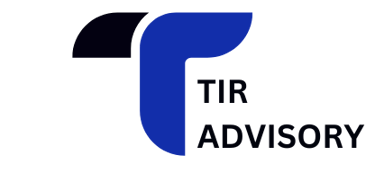Emerging Technology Risk
Helping organizations manage risks from evolving technologies through expert-led assessments, frameworks, and strategic controls.
Technology Risk & Cyber Security Management


To help organizations identify, assess, and mitigate risks related to their technology environment




Digital & Security Capability Enablement Program
To strengthen organizations' technology capability, security governance, and organizational readiness.
To help organizations establish responsible and secure AI practices through governance structure, lifecycle controls, usage policies, and continuous monitoring
AI Governance Framework


Assess your current digital and security maturity
Identify capability gaps across people, process, and technology
Develop enablement plans (training, SOPs, frameworks)
Build long-term readiness through performance tracking and improvement loops
How to Start?
Many organizations adopt digital solutions faster than their governance can support
Talent gaps in cybersecurity and tech governance are growing
Capability maturity impacts resilience, compliance, and service delivery
Internal readiness ensures smoother implementation of new technologies
Regulators increasingly expect demonstrable governance capability
Why It Matters?
This service helps organizations strengthen their internal capabilities in managing digital technologies and security governance. It includes developing internal frameworks, enhancing staff skills, and establishing structured processes to support technology adoption, security maturity, and organizational readiness.
What is Digital & Security Capability Enablement Program?
Digital & Security Capability
Enablement Program
Understand key technologies and data
Identify applicable laws & regulations
Assess risks & prioritize control
Establish ongoing monitoring & training
How to Start?
Organizations are increasingly leveraging technology
Cyber threats are growing in volume and complexity
Technology-related laws are being enforced more strictly
Regulated businesses must meet IT governance and compliance standards
Cybersecurity foundations drive trust and sustainable growth.
Why It Matters?
Managing technology risk and cybersecurity helps organizations identify, assess, and mitigate risks related to their technology environment — from data breaches and system vulnerabilities to third-party risks. It also ensures alignment with regulatory requirements and international best practices, supporting business continuity, compliance, and stakeholder confidence.
What is Technology Risk & Cyber Security Management?


Technology Risk & Cyber Security Management
AI Governance Framework
What is AI Governance Framework?
Our AI Governance Framework provides a structured approach to govern AI use responsibly and securely. It covers areas such as governance roles, AI principles, lifecycle management, usage policies, and oversight—aligned with standards like NIST AI RMF and other global best practices.
Why It Matters?
AI adoption is accelerating across industries
Responsible AI is critical to avoid ethical, legal, and operational risks
Regulators and stakeholders demand transparency and control over AI use
Poor AI governance can lead to bias, data breaches, or compliance failures
Strong frameworks enable innovation with accountability


How to Start?
Define governance structure and stakeholder responsibilities
Establish core AI principles and internal guidelines
Map and manage the AI lifecycle (plan → deploy → retire)
Set clear AI usage policies, SOPs, and approval mechanisms
Implement monitoring, audit, and risk tracking for all AI activities
Contact US
Leave your email for business contact, we will reach out to you asap!
info@tir-advisory.com
+66 95 582 9976
© 2025 by TIR Advisory Co. Ltd. All rights reserved.


